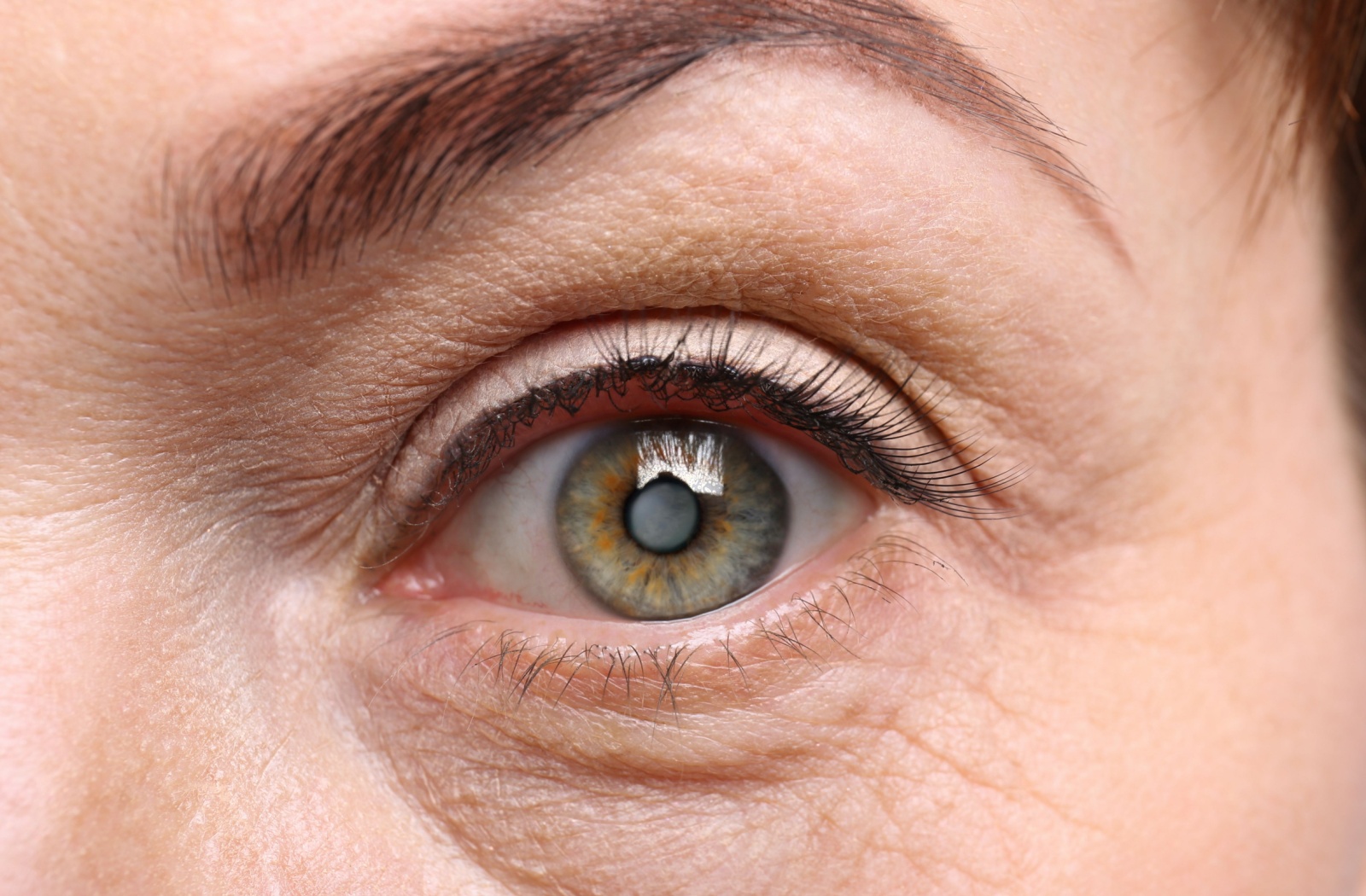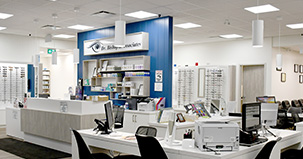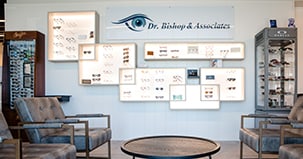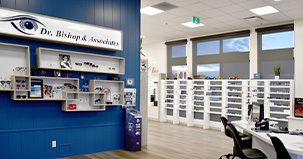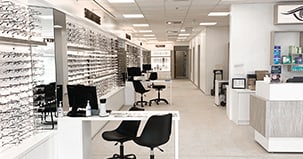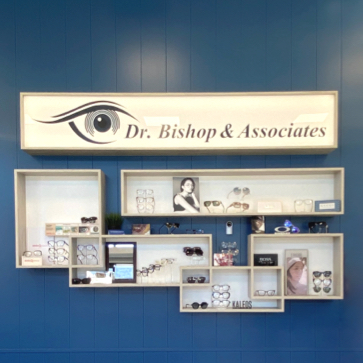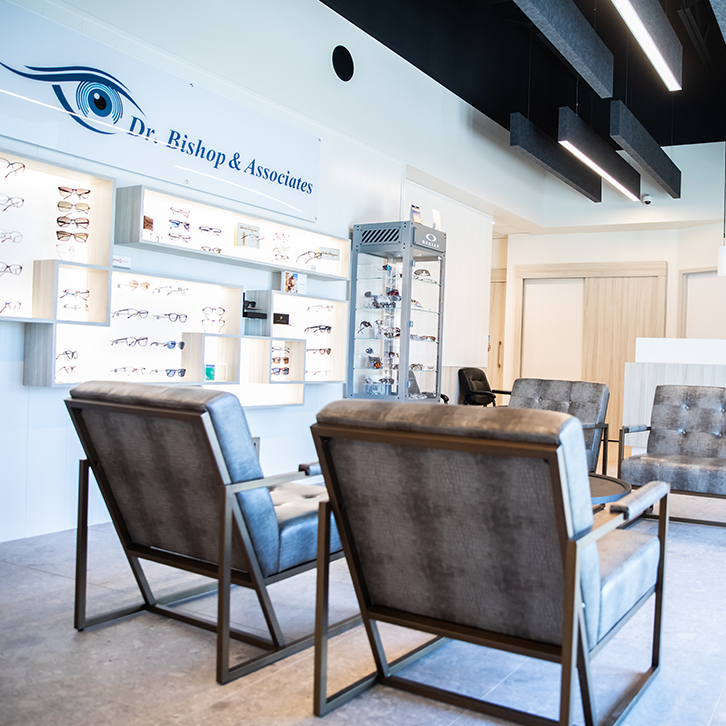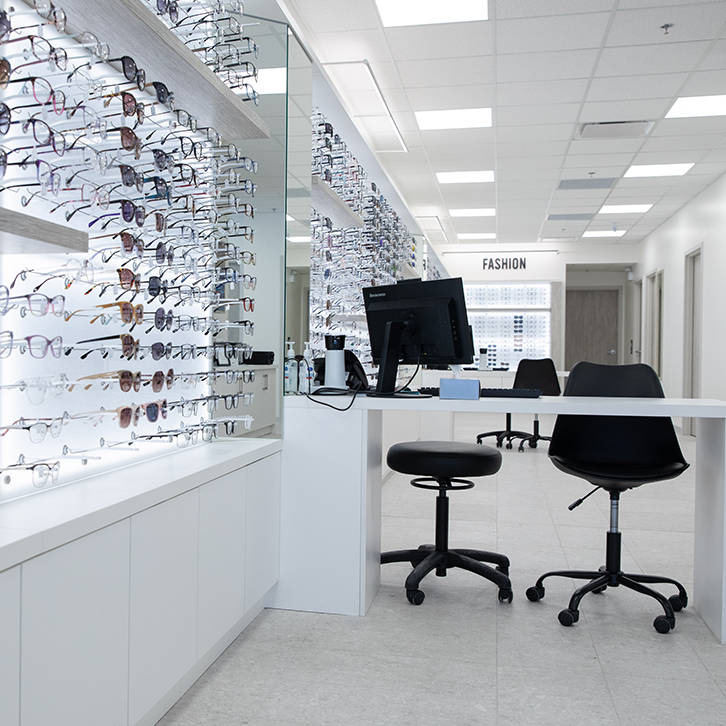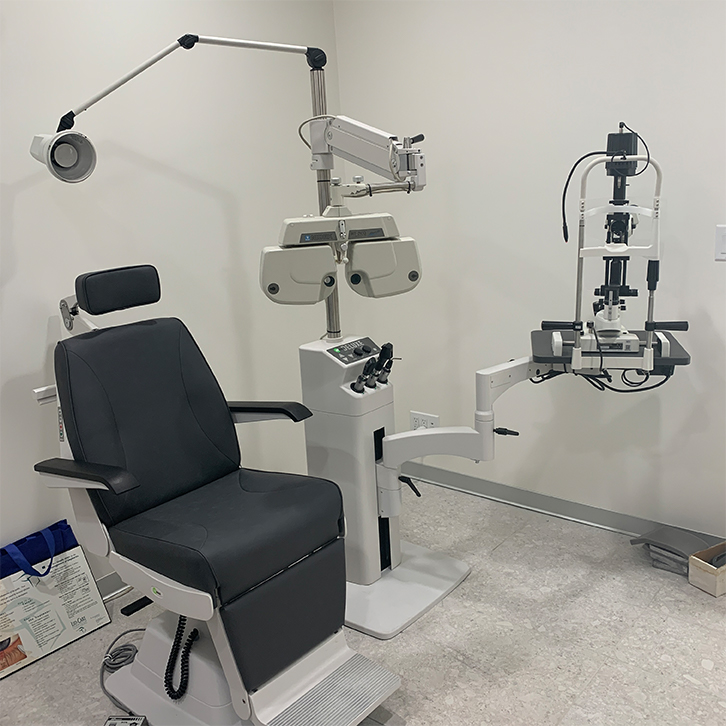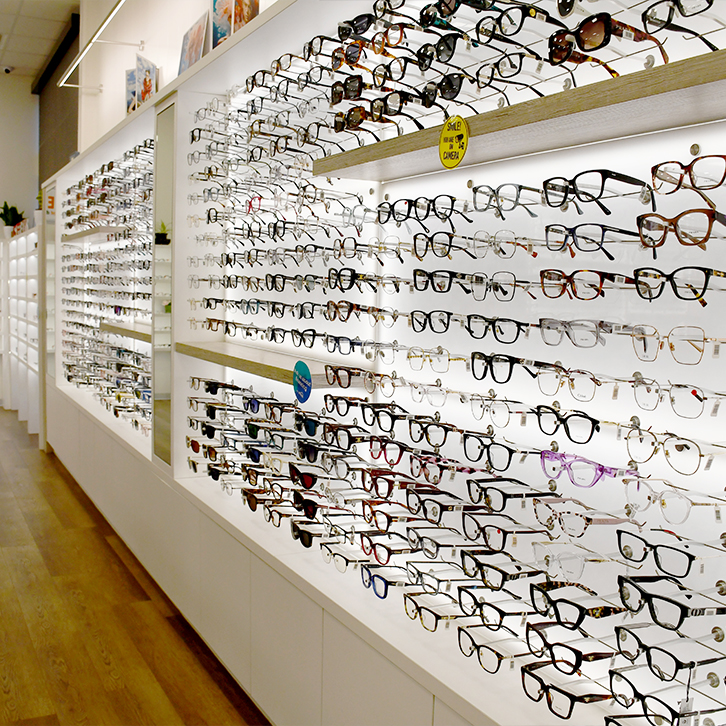Over the years, your eyes go through significant changes. One of these changes might be a condition called a cataract, which is a common part of the aging process. Cataracts are one of the leading causes of blindness worldwide, but the eye disease is fortunately treatable. But what’s the first sign of cataracts?
Cataracts develop slowly without showing obvious symptoms. However, cataracts gradually cause blurry vision, haziness, and dull colours. If you notice these symptoms, you should visit your optometrist as soon as you can to check for cataracts.
What Are Cataracts?
The human eye is kind of like a camera—a clear front lens refracts light to a certain point at the back of the eye to let you see. When it works properly, you get a clear, crisp image that lets you interpret the world around you.
However, if the lens of your camera isn’t perfectly clear, some light will be blocked. With only some light passing through, you wouldn’t get a clear image. Instead, you’d get a hazy, blurry, or dull picture.
This is how cataracts affect the eye. This common eye condition develops due to age-related changes inside the eye, usually showing symptoms after the age of 40. Protein strands start to break down and clump together, creating little deposits that stop light from fully passing through the lens. Cataracts can develop in one or both eyes and slowly progress over time.
Symptoms of Cataracts
Cataracts can be difficult to self-diagnose, especially in the earlier stages. When they start to develop, they rarely show any symptoms. However, as they worsen, cataracts can cause:
- Blurry or cloudy vision
- Difficulty seeing at night
- Sensitivity to light and glare
- Seeing halos around lights
- Frequent changes in eyeglass or contact lens prescriptions
- Fading or yellowing of colours
- Double vision in one eye
If you experience any of these symptoms, visit your optometrist as soon as you can.
Can Cataracts Make You Go Blind?
Cataracts can cause more than just blurry vision. Left unaddressed, the symptoms worsen and can eventually lead to blindness.
Age-related cataracts normally take a long time to cause blindness. Some people rarely have a change in their vision, but others may notice rapidly degrading eyesight. This can vary depending on your medical history, lifestyle, habits, and more. A healthy lifestyle can help lower your risk of cataracts. Despite the slow progression of age-related cataracts, seeing your optometrist is vital to detect and treat the eye disease as soon as possible.
It’s also worth noting that, while age-related cataracts normally take a long time to cause blindness, other types of cataracts can cause vision loss more rapidly.
Tips for Preventing Cataracts
While there is no guaranteed way to avoid cataracts, there are some steps you can take to reduce the risk of their development:
- Avoid exposure to UV rays and wear sunglasses when outdoors to protect your eyes from UV radiation
- Quit smoking as it significantly increases the risk of cataracts.
- Limit alcohol intake to reduce oxidative stress on your eyes.
- Maintain a balanced diet rich in antioxidants, such as vitamins C and E, to support eye health.
- Manage underlying health conditions like diabetes, which can accelerate cataract formation.
However, one of the most effective ways to address cataracts is to regularly visit your optometrist for comprehensive eye exams. They can monitor any changes in your eyes and vision to determine whether or not you’re at risk of developing cataracts. If they find that you’re starting to develop a cataract, they can help you make a treatment plan.
How to Treat Cataracts
If you are diagnosed with cataracts, don’t worry! This is a common condition, and fortunately, cataracts are highly treatable.
To treat cataracts, your optometrist will likely recommend cataract surgery. This is one of the most commonly performed surgeries in the world and usually only takes about 20 minutes. The procedure aims to replace your cloudy natural lens with an artificial intraocular lens, or IOL.
The Basics of Cataract Surgery
There are several steps to cataract surgery:
- Pre-surgery assessment. Your optometrist will examine your eyes in detail and measure your eyes to determine the necessary measurements.
- Anesthesia. Your optometrist will apply a local anesthetic; this helps prevent discomfort during the procedure. If needed, they may provide you with mild sedation to help you relax.
- Incision and lens removal. Your surgeon will make a small incision in the eye to reach the clouded lens. Using an ultrasound device or laser, they will break up the cataract and gently remove it from your eye.
- Intraocular lens implant. After the cataract is removed, the surgeon will insert the artificial intraocular lens (IOL) into the eye. This new, clear lens will allow light to pass through correctly, enhancing your vision.
Once the procedure is completed, you’ll be monitored for a brief period to make sure there are no immediate complications. Your surgeon will also give you some post-care instructions to promote swift recovery.
Most patients experience significant vision improvement within a few days. If you notice severe discomfort at any point during your recovery, immediately contact your optometrist.
Get Checked for Cataracts
If you’re noticing any changes in your vision, don’t wait for symptoms to get worse. Come talk to our team at Dr. Bishop & Associates. We would be delighted to help. Book an appointment with us today, and let’s work together to keep your eyes healthy and your vision clear.

